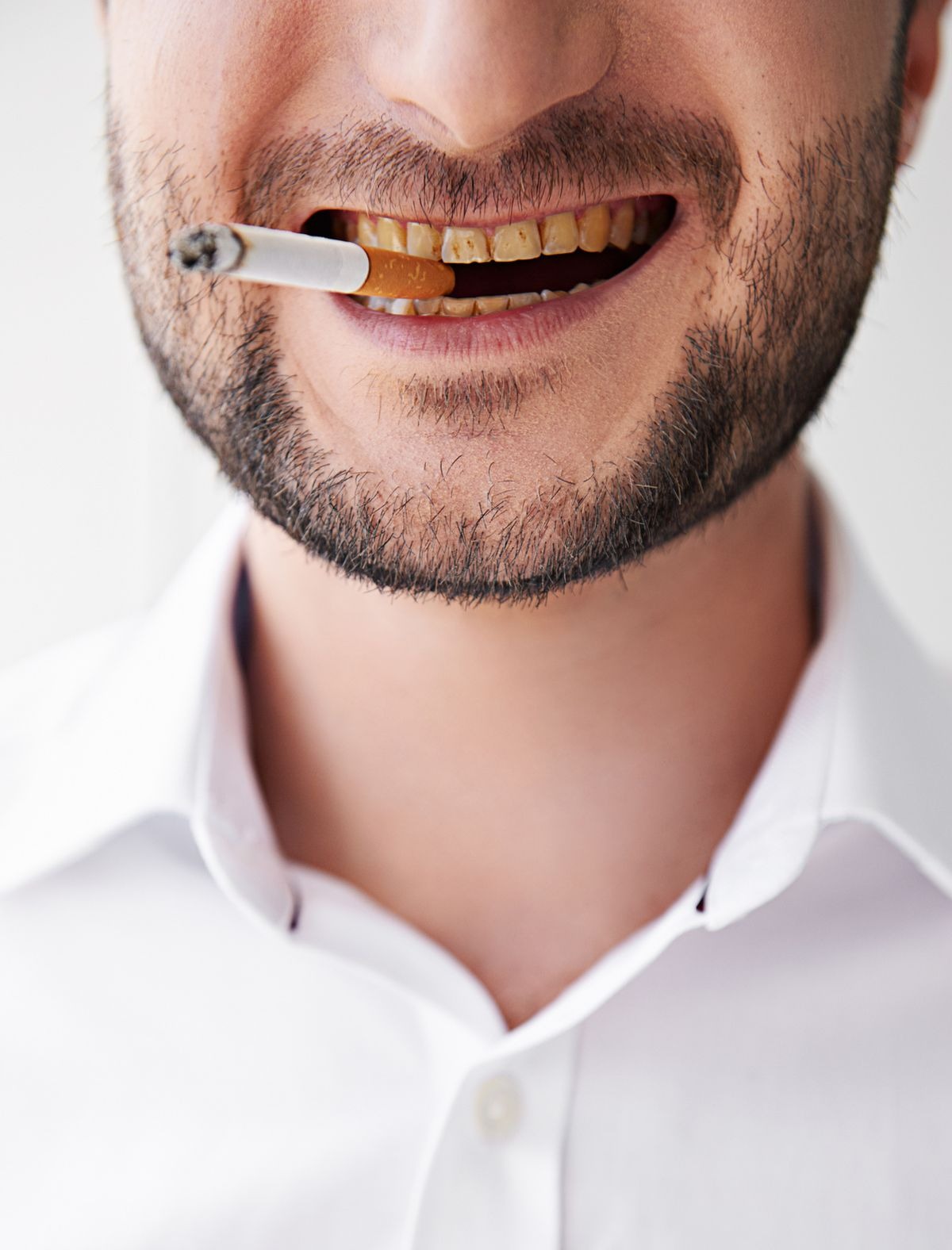Subtotal $0.00
Smoking is not just harmful to your lungs, heart, and overall health – it also has a detrimental impact on your teeth and gums. At Dr. White Dental Care, we believe in providing comprehensive dental education, and understanding the effects of smoking on oral health is crucial. In this blog, we’ll discuss how smoking affects your teeth and gums, and offer tips on how to protect your smile.
1. Discoloration of Teeth
One of the most immediate and noticeable effects of smoking on your teeth is discoloration. The tar and nicotine found in cigarettes cause staining and yellowing of your teeth. These stains are stubborn and can be difficult to remove even with regular brushing. Over time, smoking can lead to a dull, yellowish smile that may require professional whitening treatments to restore its natural brightness.
2. Increased Plaque and Tartar Buildup
Smoking leads to a dry mouth, which reduces the production of saliva. Saliva plays an essential role in cleaning the mouth and neutralizing acids produced by bacteria. Without enough saliva, plaque and tartar can build up more easily on your teeth, increasing the risk of cavities and gum disease. Tartar, a hardened form of plaque, can only be removed through professional cleaning, making regular dental visits even more critical for smokers.
3. Gum Disease and Receding Gums
Smokers are more susceptible to gum disease, which can range from gingivitis (gum inflammation) to more severe conditions like periodontitis (gum infection that leads to tooth loss). Smoking weakens your immune system, making it harder for your body to fight off infections in the gums. Additionally, smoking constricts blood vessels in the gums, reducing blood flow and oxygen levels, which slows the healing process and contributes to gum recession. As your gums recede, your teeth become more exposed, making them more vulnerable to damage and infection.
4. Tooth Loss
Chronic smoking can significantly increase the risk of tooth loss. Smokers are at a higher risk of developing advanced gum disease, which is one of the leading causes of tooth loss in adults. The combination of weakened gum tissue, poor blood circulation, and increased plaque buildup leads to a breakdown of the structures supporting your teeth, ultimately resulting in tooth loss.
5. Oral Cancer
Smoking is a major contributor to oral cancer. The harmful chemicals in tobacco can damage the tissues in your mouth, leading to the development of cancerous cells. Smokers are at a higher risk of developing cancers in the lips, tongue, cheeks, and throat. Regular dental check-ups are essential for detecting early signs of oral cancer, especially for smokers.
6. Bad Breath (Halitosis)
One of the most unpleasant effects of smoking is bad breath, also known as halitosis. Smoking causes dry mouth, which reduces the production of saliva that helps cleanse the mouth. The bacteria that thrive in a dry mouth produce foul odors, leading to persistent bad breath. Smokers also often have a distinctive tobacco smell that lingers on their breath, making it difficult to maintain fresh breath.
7. Slower Healing After Dental Procedures
If you are a smoker, your ability to heal after dental procedures is compromised. Smoking interferes with the healing process, making it harder for tissues in your mouth to recover after surgery, extractions, or other dental treatments. Smokers are more likely to experience complications such as dry sockets after tooth extractions, which can delay the recovery process and lead to more discomfort.
Tips for Protecting Your Teeth if You Smoke:
While quitting smoking is the best decision for your health and your smile, we understand that it may not be an easy task. If you continue to smoke, here are some tips to minimize its impact on your oral health:
- Brush and Floss Regularly: Brushing twice a day with fluoride toothpaste and flossing daily helps remove plaque and tartar buildup.
- Use a Whitening Toothpaste: A toothpaste specifically designed for smokers can help remove surface stains and whiten your teeth.
- Stay Hydrated: Drink plenty of water to help combat dry mouth and stimulate saliva production.
- Visit Your Dentist Regularly: Regular cleanings and check-ups are crucial for smokers to monitor and maintain oral health.
- Quit Smoking: Consider seeking support to quit smoking. Your dentist can provide resources and guidance to help you with this process.
Conclusion
Smoking not only harms your overall health but also significantly affects your teeth and gums. From discoloration and gum disease to tooth loss and oral cancer, the consequences of smoking on oral health are far-reaching. At Dr. White Dental Care, we are committed to helping you maintain a healthy, beautiful smile. If you are concerned about the effects of smoking on your teeth or need assistance with quitting, don’t hesitate to reach out to us. Together, we can work towards better oral health and a brighter future.
Take the first step towards a healthier smile by scheduling a consultation with Dr. White Dental Care today!

